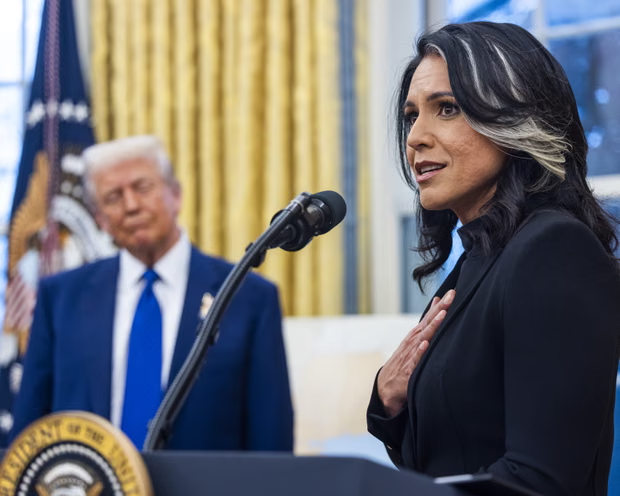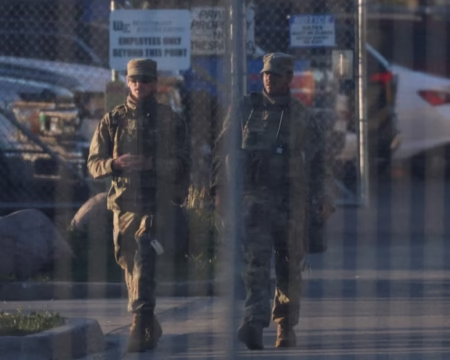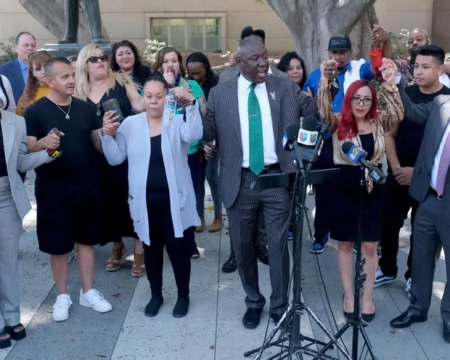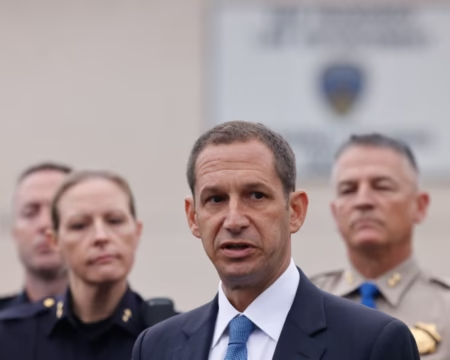Tulsi Gabbard, the director of national intelligence, triggered fresh controversy last month after revoking the security clearances of 37 officials without alerting the White House beforehand, according to people familiar with the matter. The decision, which affected senior CIA staff and congressional aides, has raised questions about communication, oversight, and the role of politics in the intelligence community.
The move caught many off guard because the White House had no chance to vet the list before it became public. There was also no paper trail showing a direct order from the president to take such sweeping action. Several of the individuals affected were career CIA officials, including a top adviser to CIA director John Ratcliffe. One of them had worked on some of the country’s most sensitive military operations.
The list also included Maher Bitar, a national security adviser to Senator Adam Schiff, and Thomas West, an aide on the Senate foreign relations committee. Their inclusion sparked concerns that the administration was moving into a clash over separation of powers by targeting congressional staffers. Weeks later, senior advisers close to Trump remain frustrated with Gabbard and see the episode as a blunder at a time when Trump has openly questioned the value of the intelligence community and even suggested dismantling the office of the director of national intelligence.
The situation has added to tensions between Gabbard and the CIA. Her main responsibility as director of national intelligence is to brief the president daily and oversee intelligence agencies, yet the CIA remains the agency that produces the reports she delivers. Frustrations deepened when her deputy chief of staff, Alexa Henning, was unable to fully explain how the list was created or what evidence supported the decision to revoke the clearances.
A senior intelligence official defended Gabbard, saying she had informed Trump directly in the Oval Office. According to this account, Gabbard presented names of officers who had contributed to assessments on Russian interference in the 2016 election. Trump reportedly told her that if those people were still employed in the government, they should be removed. The official insisted Gabbard was carrying out the president’s agenda and said the list was emailed to senior White House officials, the National Security Council, and the chiefs of staff at each major intelligence agency.
A White House spokesperson did not confirm whether advance notice had been given but defended Gabbard’s performance. The statement praised her work and said the administration was united in ensuring that those who misused their clearances to manipulate or leak intelligence would be held accountable. The spokesperson added that the revocations were part of a broader effort to correct what Trump’s team saw as flawed assessments and to punish political adversaries accused of weaponizing intelligence during the 2016 election debates.
In a memo announcing her decision, Gabbard wrote that holding a security clearance is a privilege, not a right, and that individuals who put personal interests above national interests break the public trust. She said the revocations targeted people involved in politicization, partisan agendas, or unauthorized leaks of classified material. The move was consistent with an earlier executive order and followed other clearance withdrawals against high-profile political figures, including Joe Biden and Kamala Harris, as well as individuals linked to Trump’s first impeachment.
Despite the uproar, Gabbard is unlikely to face serious consequences. She has weathered other controversies, including Trump publicly contradicting her assessment on Iran’s nuclear ambitions. Earlier this year she testified that Iran was not pursuing a nuclear bomb, but Trump dismissed her comments, saying he believed Iran was close to obtaining one. She was also absent from a key meeting at Camp David on the issue. Around the same time, she released a video warning about the risks of nuclear annihilation, which angered Trump, who felt it stoked unnecessary fear and served her personal ambitions.
The clearance controversy highlights a broader struggle inside the administration over control of intelligence and the role of politics in national security. Trump has long accused intelligence agencies of bias and has leaned on loyal allies to reshape the community. Supporters argue that revoking the clearances was necessary to prevent further leaks and restore accountability. Critics see it as another sign of political interference that undermines the independence of intelligence professionals.
As the debate continues, the decision by Gabbard has underscored the delicate balance between security and politics. By moving ahead without wider consultation, she has exposed rifts within the administration and raised doubts about the coordination between her office, the White House, and the intelligence agencies that provide vital information for national security. For now, Tulsi Gabbard security clearances remain a flashpoint in the ongoing battle over how intelligence is handled at the highest levels of government.







